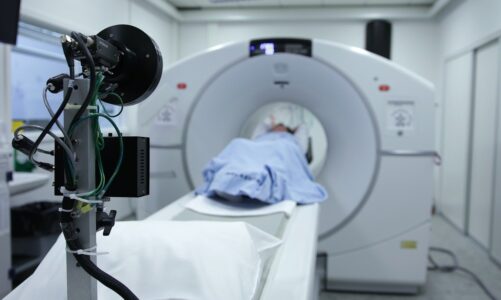Contents
In this post, we highlight some of the highly recommended foods to integrate into your diet if you are undergoing menopause.
Menopause is the transition that half the earth’s population undergoes later in life, marking the end of a woman’s periods and thus her fertile years, setting in motion a deluge of uncomfortable symptoms that can sometimes last years.
Menopause can be confirmed once a woman has not had a period for 12 months and is characterised by a decline in oestrogen levels. Some of the markers of menopause include the infamous hot flush, difficulty sleeping and potential weight gain. The menopause toolkit is ever-expanding, but we’re bringing it back to basics by looking at some of the foods we can eat to manage the symptoms of menopause. So grab some soybeans and read on.
Phytoestrogens
Menopause sees the plummeting of oestrogen levels, which has been linked to weight gain and inflammation. It is thereby important to try and boost this hormone via phytoestrogen-rich foods. Phytoestrogens are plant nutrients which have been suggested to help reduce the number of hot flushes experienced during menopause. In addition, they have been said to potentially ease symptoms of depression among postmenopausal women. Phytoestrogens are present in various foods, such as:
- Grapes;
- Plums;
- Berries;
- Soybeans;
- Chickpeas;
- Peanuts;
- Green and black tea.
Other Foods That You Should Try To Eat While Experiencing Menopause
Fruit And Veg
It should come as no surprise that fruit and vegetables are key players in an optimal menopause diet plan. They are loaded with vitamins, minerals, fibre and antioxidants. Cruciferous vegetables (cauliflower, cabbage, kale, garden cress, bok choy, broccoli, Brussel sprouts and others) are thought to potentially reduce hot flushes not to mention, of course, helping to aid weight loss due to being so healthy.
Dairy
The decline of bone health is a major side-effect of menopause. Bones are at higher risk of fractures during menopause due to the decline in oestrogen levels. Dairy products such as cheese, yoghurt and milk contain calcium, magnesium, potassium and phosphorus, as well as vitamins D and K, all of which are crucial for supporting bone health.
Research has suggested that milk and general dairy intake can aid sleep. Before going to bed, then, try sipping a cup of hot milk or hot chocolate. This may serve a double purpose of strengthening bones and aiding sleep, the lack of which is yet another symptom of menopause.
Whole Grain Foods
Whole grains, such as buckwheat, brown rice, whole-wheat bread, barley, quinoa, rye and oatmeal, are highly nutritious, fibrous and contain important vitamins. Studies suggest that whole grain foods can help you regulate your weight, which may serve those finding that unwanted weight gain has been one of their symptoms during menopause.
Protein
As oestrogen levels drop during menopause, so too do muscle mass and bone strength.
A way to fight this is by consuming plenty of protein when going through menopause. As such, you might try eating plenty of eggs, fish, meat, legumes and dairy (as discussed above). If you’re vegan, chickpeas, lentils and adding protein powder to dishes can be great alternative sources of protein.
Healthy Fats
While the research in this department is scarce, it has been posited that healthy fats, such as omega-3 fatty acids present in some fish and seeds, could minimise the frequency of hot flushes and ease the effects of night sweats.
Is There Any Food To Avoid During Menopause?
Sadly, many of the fun foods and drinks could be making your menopausal symptoms worse. Still, you should eat what makes you happy as long as it’s in moderation and part of a healthy and balanced diet.
Caffeine
Unfortunately for our coffee fiends, caffeinated drinks are thought to be a trigger for hot flushes. Caffeine can also interfere with sleep, meaning it may be best avoided during menopause if you are struggling with sleep, as so many do.
Alcohol
Similarly to caffeine, alcohol can also disrupt sleep. Consider cutting it out for a while or significantly reducing how much you drink if you think it may be adding to your sleep troubles.
Spicy Foods
Whether or not spicy food is actually detrimental to symptoms of menopause is still up for debate, with some researchers finding a connection between spicy food, hot flushes and anxiety. It most likely comes down to you personally, so perhaps try toning down the spice if you think it may be aggravating your hot flushes.
Processed Carbs And Added Sugar
Processed foods and added sugars can lead to high blood sugar, which can increase the frequency of hot flushes. By cutting down your daily intake of processed foods, such as white bread, cakes and breakfast cereals, you could potentially help decrease the number of hot flushes hitting you on a daily basis.
Fatty Foods
Though it’s tempting to mong out on the sofa with just a tub of Ben & Jerry’s and a spoon, this could be exacerbating ill-health during menopause.
Saturated fat and trans fats may raise cholesterol and increase the risk of heart disease. With this in mind, it might be best not to fill up on meats, cheese, whole milk and ice cream too regularly, or any other high-fat foods for that matter.
Think You Might Be Perimenopausal?
Perimenopause – the period of a woman’s life before reaching menopause, characterised by a gradual decline in oestrogen levels and usually a series of symptoms. If you’re worried about potentially being perimenopausal and want to gain some clarity and control over what’s going on inside your body, it might be worth taking a biological age test.
For any perimenopausal (or otherwise) symptoms that are disrupting your daily life, remember to seek medical attention at the earliest opportunity. On average, perimenopause occurs when a woman is between the ages of 45 to 55 in the UK.
Final Word
Menopause is received differently by every woman. Some experience it in a more physical way; for others, it takes its toll mentally. For some, it marks a new chapter of freedom; for others, it is the undesirable phase that always felt a lifetime away. Whether or not you’re plagued with the brutal textbook symptoms, your diet when going through menopause carries a great deal of importance.
Reviewing what you eat could unlock your potential to feel entirely different. So it is well worth having a think about what you’re putting into your body and how it might be affecting your journey through menopause.


